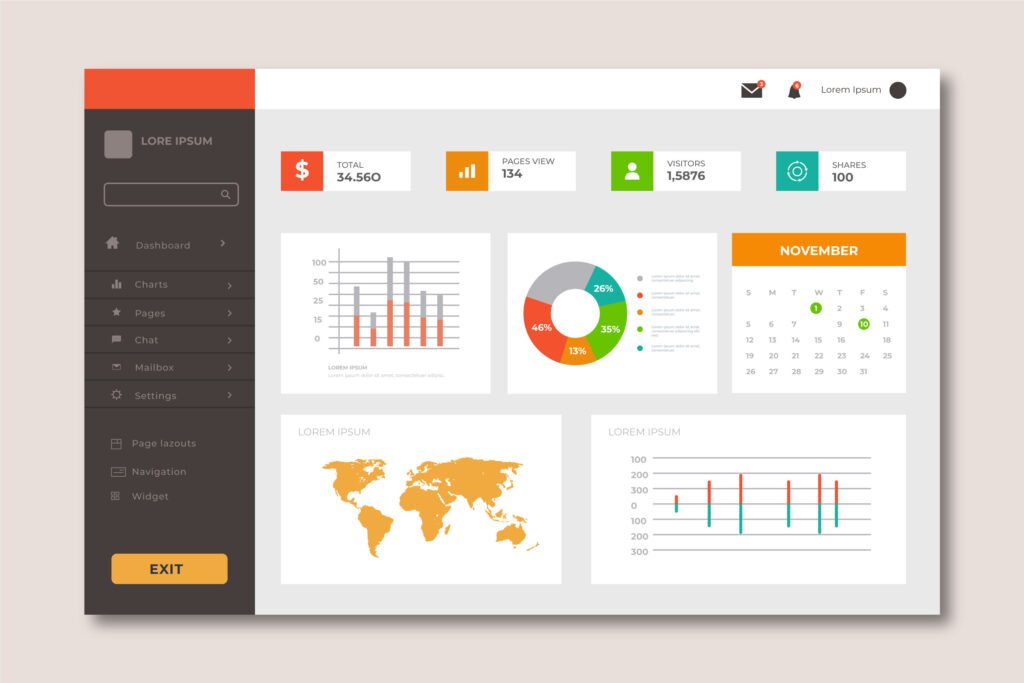When it comes to website creation and management, WordPress has proven to be a powerful platform for both beginners and experienced users. However, like many others, I found myself struggling to conquer this versatile content management system (CMS). After a few failed attempts, I refused to be discouraged and made it my mission to unravel the secrets of WordPress. In this article, I will share my personal journey, highlighting the obstacles I faced and the strategies I used to finally conquer WordPress. Join me as I delve into the world of WordPress and offer you valuable insights to help you achieve success. The Third Time Lucky How I Conquered WordPress?
Table of Contents

The Third Time Lucky How I Conquered WordPress?
After two unsuccessful attempts at harnessing the power of WordPress, I was determined to make the third time the charm. Little did I know about the rollercoaster ride that awaited me. However, armed with determination and a bag full of lessons from my previous failures, I set out on my quest once again, hoping that this time, I would emerge victorious.
My Initial Struggles with WordPress
Starting Out with WordPress
When I first embarked on my WordPress journey, I was filled with excitement and high expectations. However, as I delved into the platform, I quickly realized that it wasn’t as straightforward as I had initially thought.
Overwhelmed by the Learning Curve
One of the biggest challenges I faced was the steep learning curve. WordPress is a powerful content management system (CMS) with a myriad of features and functionalities. Understanding how to navigate through its interface, customize themes, and create engaging content proved to be a daunting task.
Dealing with Technical Challenges
In addition to the learning curve, I encountered various technical challenges along the way. From issues with hosting providers to compatibility problems with plugins, these obstacles often left me frustrated and discouraged.
Learning from Past Mistakes
Taking a Step Back
After facing multiple roadblocks, I realized that I needed to reevaluate my approach. Rather than continuing to repeat the same mistakes, I decided to take a step back and analyze my previous attempts.
Analyzing My Previous Attempts
To gain insights into my failures, I reviewed my past WordPress projects and identified the areas where I struggled the most. This analysis allowed me to pinpoint recurring issues and understand the gaps in my knowledge.
Identifying Areas for Improvement
Based on my analysis, I made a list of the specific areas where I needed to improve. These included honing my design skills, expanding my understanding of SEO best practices, and becoming more proficient in troubleshooting common WordPress problems.
Implementing a New Approach
Seeking Knowledge and Resources
Armed with a clear understanding of my weaknesses, I set out to acquire the necessary knowledge and resources to overcome them. I turned to online tutorials, forums, and reputable WordPress communities to expand my skill set.
Expanding My WordPress Skills
I invested time in learning the ins and outs of WordPress. I familiarized myself with its core functionalities, explored different themes and plugins, and discovered techniques for optimizing site performance and user experience.
Leveraging Online Communities
The WordPress community proved to be an invaluable resource. I actively engaged in forums, participated in discussions, and sought advice from experienced users. The collective knowledge and support of the community played a pivotal role in my WordPress journey.

Overcoming WordPress Challenges
Mastering Content Creation
Creating compelling and engaging content is essential for any successful website. I dedicated time to refine my writing skills, understanding the principles of effective copywriting, and developing a content strategy that aligned with my target audience.
Optimizing for SEO
To increase my website’s visibility and reach, I delved into the world of search engine optimization (SEO). I learned about keyword research, on-page optimization techniques, and the importance of creating high-quality, relevant content.
Navigating Plugins and Themes
The vast selection of plugins and themes available for WordPress can be overwhelming. I took the time to research and test different options, ensuring I selected those that aligned with my website’s goals and enhanced its functionality.
Finding Success with WordPress
Growing and Engaging an Audience
As I continued to refine my WordPress skills, I focused on growing and engaging my audience. I leveraged social media platforms, implemented email marketing strategies, and actively sought feedback to improve the overall user experience.
Building a Responsive Website
With the increasing number of users accessing websites through mobile devices, I prioritized creating a responsive website. I embraced responsive design principles, ensuring that my site provided an optimal experience across different screen sizes.
Harnessing the Power of WordPress Features
As my confidence in WordPress grew, I explored advanced features such as custom post types, taxonomies, and custom fields. Leveraging these powerful tools allowed me to create dynamic and tailored websites that met the unique needs of my clients.

Conclusion
Embracing the Journey with WordPress
Conquering WordPress was not an easy task, but it was a journey worth taking. Through perseverance, a willingness to learn, and a change in approach, I overcame the initial struggles and found success with WordPress. Today, I confidently utilize WordPress to create stunning websites, engage audiences, and build online businesses. Remember, the path to conquering WordPress may have its challenges, but the rewards are undoubtedly worth it.
My journey to conquer WordPress was not without its share of challenges and setbacks. However, through persistence, continuous learning, and a growth mindset, I successfully overcame the obstacles that stood in my way. WordPress has become my trusted ally, empowering me to create and manage websites with ease. Remember, the road to conquering WordPress may not be a smooth one, but with determination and the right approach, you too can unlock its full potential and achieve online success.
FAQ
How long does it take to become proficient in WordPress?
Becoming proficient in WordPress depends on various factors, such as your prior knowledge of web development and your dedication to learning. With consistent effort and practice, you can acquire a good understanding of WordPress within a few weeks or months. However, to become truly proficient and leverage its advanced features, it may take several months to a year or more of continuous learning and hands-on experience.
Is WordPress suitable for e-commerce websites?
Absolutely! WordPress offers a range of plugins and themes specifically designed for e-commerce websites. With popular solutions like WooCommerce, you can easily set up an online store, manage products, handle payments, and customize the design to create a professional and functional e-commerce platform. WordPress’s flexibility and extensive plugin ecosystem make it an excellent choice for entrepreneurs looking to start and grow their online businesses.
Can I switch themes without losing my content?
Yes, you can switch themes in WordPress without losing your content. WordPress separates the content from the design, allowing you to change themes while keeping your website’s pages, posts, and media intact. However, it’s important to note that different themes have different structures and features, which might require some adjustments to ensure your content looks optimal with the new theme. It’s recommended to preview the new theme before making it live and to backup your website’s data as a precautionary measure.
What are some essential plugins for WordPress?
The choice of plugins depends on your specific needs, but there are a few essential plugins that can enhance your WordPress website’s functionality and security. Some popular ones include:
Yoast SEO: A comprehensive SEO plugin that helps optimize your content for search engines.
Akismet: Protects your website from spam comments.
Jetpack: Offers a suite of features including site stats, security, performance optimization, and more.
Contact Form 7: Enables easy creation and management of contact forms on your website.
Wordfence Security: Provides robust security measures to protect your WordPress site from potential threats.
Remember to carefully evaluate and research plugins before installing them to ensure compatibility, reliability, and performance.
How do I keep my WordPress website secure?
Keeping your WordPress website secure is essential to protect it from potential vulnerabilities and cyber threats. Here are some best practices:
Keep WordPress, themes, and plugins updated to benefit from the latest security patches and bug fixes.
Use strong, unique passwords for all user accounts and avoid using the default “admin” username.
Install a reputable security plugin to monitor and defend against malware, hacking attempts, and other security risks.
Regularly back up your website’s data to a secure location to ensure you can restore it in case of any unforeseen events.
Use secure hosting providers and enable HTTPS encryption for secure data transmission.
Be cautious when installing themes and plugins, ensuring they come from trusted sources and have a good track record of updates and support.
What are some essential plugins for WordPress beginners?
For beginners, I recommend starting with essential plugins such as Yoast SEO for optimizing your website’s search engine visibility, Akismet for spam protection, and Jetpack for enhanced website functionality.
How can I choose the right WordPress theme for my website?
When selecting a WordPress theme, consider factors like responsiveness, customization options, user reviews, and the developer’s reputation. It’s also important to choose a theme that aligns with your website’s purpose and aesthetics.
How can I improve my website’s loading speed on WordPress?
To enhance your website’s loading speed, optimize your images, install a caching plugin like W3 Total Cache, enable browser caching, and choose a reliable hosting provider.
Is it necessary to learn coding to master WordPress?
While coding knowledge is not mandatory, having a basic understanding of HTML, CSS, and PHP can be beneficial for customizing your website and troubleshooting issues.
What are some common security measures for WordPress websites?
To enhance the security of your WordPress website, regularly update themes, plugins, and the WordPress core, use strong passwords, implement a firewall, and consider using a security plugin like Wordfence.
How can I optimize my WordPress website for search engines?
Optimize your WordPress website for search engines by using an SEO plugin like Yoast SEO, creating high-quality content with relevant keywords, optimizing meta tags and descriptions, and building backlinks from reputable sources.
Can I customize the appearance of my WordPress website?
Absolutely! WordPress provides an extensive selection of themes and customization options, allowing you to create a unique and visually appealing website.
How does WordPress compare to other content management systems?
WordPress stands out due to its user-friendly interface, extensive plugin ecosystem, and large community of developers and users. It is a versatile and powerful platform suitable for various website types.
Is WordPress suitable for large-scale websites?
Yes, WordPress is highly scalable and can handle large-scale websites with ease. Many popular websites, including news outlets and Fortune 500 companies, rely on WordPress for their online presence.



